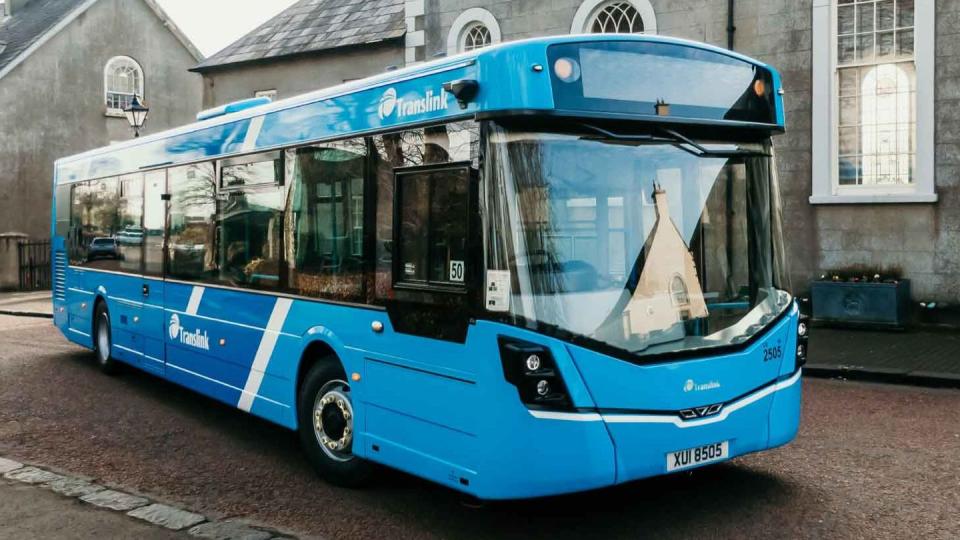Could This Be the Best Way to Build More Electric Buses?

Wrightbus launches facility and program to convert its internal combustion models into battery-electric ones, with components from suppliers.
The repowered buses will use battery packs from NMC and electric drive units from Voith, with each conversion process estimated to take three weeks.
So far, Wrightbus has developed a conversion program solely for its own buses, but third-party EV conversions are also seeing interest from city fleets.
Turning city bus fleets electric has been one of the first large-scale decarbonization efforts undertaken by European cities. But even if 100% of all new fleet purchases by municipalities were of EV buses, there would still be plenty of diesel models on the roads for years or decades to come, just due to the long lifespans of city models and the fulfillment of already signed contracts.
One way the process could be sped up is through the conversion of diesel buses into electric ones as part of their overhaul process—a procedure that is just now starting to gain interest from cities small and large. But until now, such conversions have been performed mostly by third party specialists on a small scale, rather than the bus manufacturers themselves, and mostly on an experimental basis.
Northern Ireland's Wrightbus has just become the first bus manufacturer to offer its own repowering process, after opening a new facility dubbed NewPower in Bicester, Oxfordshire.
The conversion process at the new facility is designed to take just three weeks, with space and staff allowing for six buses at a time to undergo the procedure. Wrightbus plans to use NMC battery packs and electric drive systems supplied by Voith, with each bus set to offer a capacity of about 300 kWh, giving them a range of almost 150 miles between recharges.
"While we are selling new hydrogen and battery-electric buses all over the world, there is a huge market of mid-life buses which, once converted, can have an immediate impact on helping to improve air quality in towns and cities up and down the UK," said Wrightbus CEO Jean-Marc Gales.

The company has hired 22 new specialists for this new unit, and has hired experienced staff from McLaren, BMW, and Land Rover Special Vehicle Operations. Wrightbus expects to have a total of 65 employees working at the NewPower facility in the town of Bicester by the end of the year.
At the moment Wrightbus has over 900 newly built BEV buses on the road. But the repowering process could boost that number by as many as 500 a year once it is scaled up, while also offering municipalities a much more cost-effective way of acquiring zero-emission buses. The cost of the conversion process is estimated to be about £200,000 (about $250,000), which is about a third of the cost of a new battery-electric bus.
"Given traditional buses consume 40,000 liters of diesel per year, the improvements in air quality are immense," Wrightbus notes.
The company's repowering program is tailored to its own bus models, including its double-decker bus. But a UK-based startup, Kleanbus, has also been working on a a technology-agnostic approach to such conversions, designed to cost about one-fifth the price of a new battery-electric bus and require as little as two weeks of work.
Ultimately, we suspect that more third-party conversion programs will be needed if this process were to be adopted (and financed) by large cities in the US and elsewhere.
Will we see almost all bus purchases by cities in the US become electric by the end of the decade, or will most new city buses still rely on diesel, CNG, or hybrid power by 2030? Let us know what you think in the comments below.

 Yahoo Autos
Yahoo Autos 